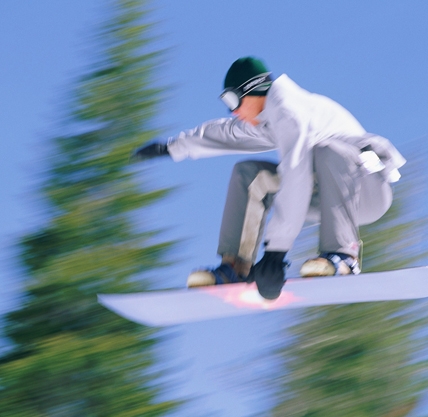
If a young adult has sustained a series of mild brain injuries during snow boarding, vehicle crashes, and incidents with substance abuse, what can be done to help him with issues that continue years later?
Young adults — especially males — are at high risk for brain injury because they often engage in risky activities. Once a young person has sustained a brain injury, it's important to ascertain exactly what problems have resulted from the brain injury. Many times, psychosocial problems will begin to appear, so it will be helpful to not only seek medical support, but therapeutic support as well. Doctors may suggest the help of counselors, social workers, or other therapists to help their patient live a more productive and meaningful life.
Substance abuse is an all too-common problem for many individuals following a brain injury. Some people turn to alcohol or drugs in hopes of finding some relief from pain, depression, or anxiety, but oftentimes these substances only compound the problem and ultimately interfere with a person's recovery.
Following a brain injury, many people experience impairments in their executive functioning, affecting their sense of judgment and insight. When the ability to make good choices is impaired, some people are particularly susceptible to the influence of friends and family. For people with a brain injury, peer influence can be a pronounced factor that can have both positive or negative effects.
In more complex cases, sometimes the best therapeutic intervention requires changing a person's environment. What seems to trigger times of stress or frustration? The answer could surprise you. It may require turning off the television, a change of diet, or simply the creation of a better environment for resting and relaxation. Some people may enlist the help of a behavioral analyst to create a plan for positive coping strategies.
About the author: Michael Paul Mason
Michael Paul Mason is the founding editor of This Land, a monthly magazine based in Tulsa. Mason's first book, Head Cases: Stories of Brain Injury and Its Aftermath, is an exploration into the harsh realities endured by people with brain injury.


Comments (3)
Please remember, we are not able to give medical or legal advice. If you have medical concerns, please consult your doctor. All posted comments are the views and opinions of the poster only.
Anonymous replied on Permalink
Ray replied on Permalink
What can a parent of young adult male that has had concussions in past most recent lost conciousness few minutes, he did not tell us about it for couple days this was 4 wks ago he has no insurance an wont go to doc any advice ?
Tannis replied on Permalink
Move to Canada where your medical is paid for and you don’t end up loosing everything due to large hospital bills. IM BEING SERIOUS!!